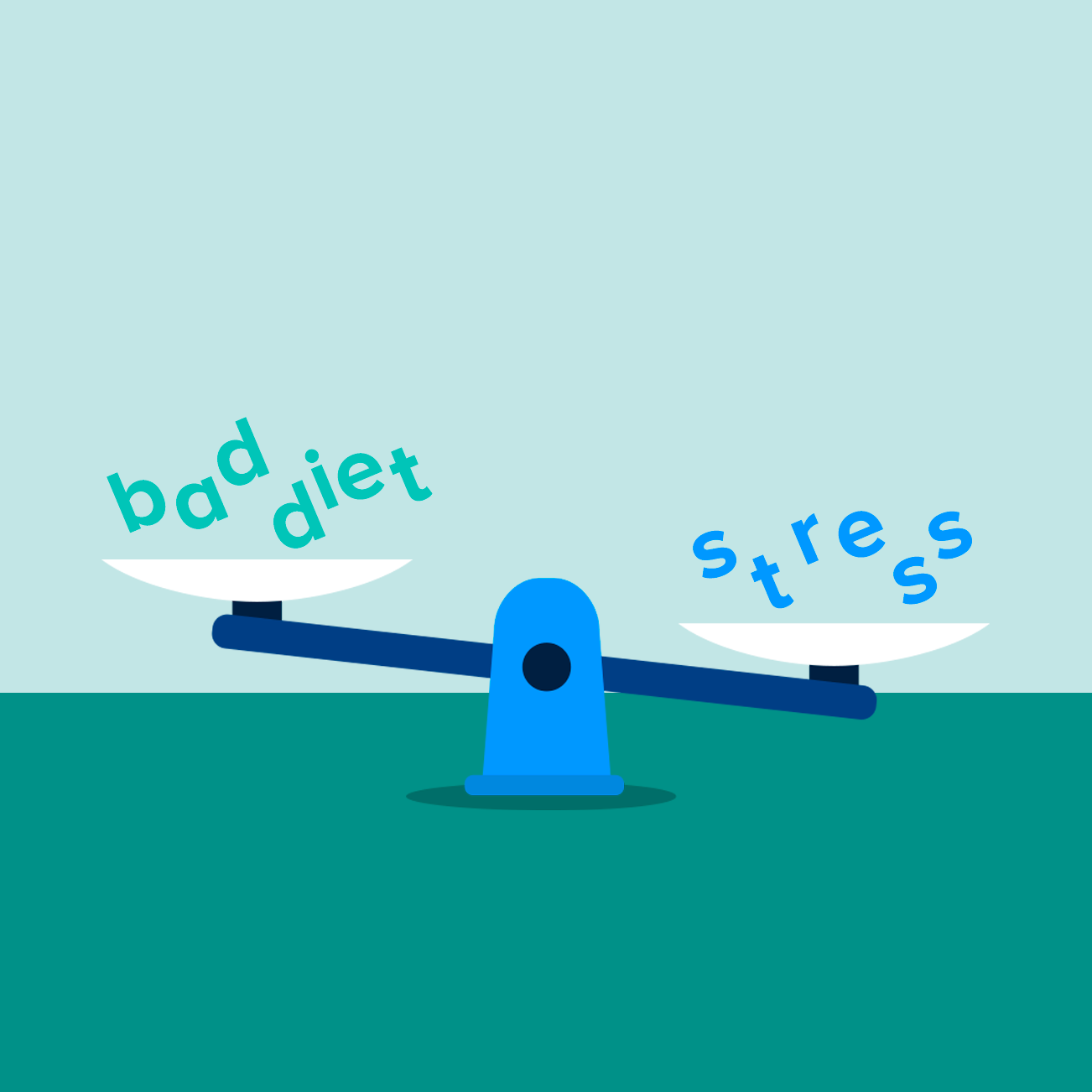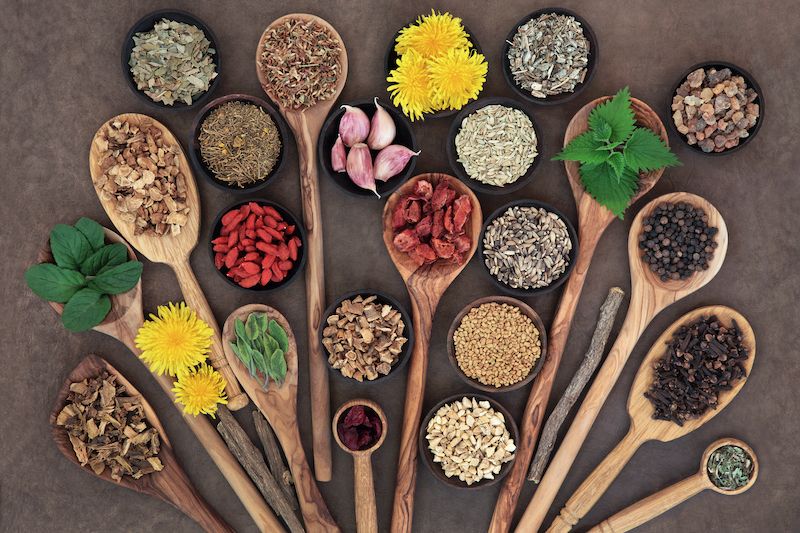You get stressed, you get triggered — you order a pizza.
Yum!
Bad, though.
I guess we’ve all been there at some point. But while many of us look for ways to cut out the triggered bit so that we don’t gorge on pizza each time we have a bad day at work, too few of us are examining the actual stress bit.
Think eating pizza is bad? Wait until you find out what stress does to you. Sure, it triggers us and causes us to overeat (or undereat), but it does so much more than that. If you want to get healthier, you not only have to cut out a bad diet, you also have to cut out stress — or learn how to cope with it better.
In this article, I’m going to take a look at the effect stress and a bad diet has on our bodies, as well as ways you can remove as much stress and overwhelm from your life as possible.
How bad is a bad diet?
Very bad.
A poor diet means you’re not getting the nutrients you need into your system, and it puts you at risk of developing high blood pressure, tooth decay, high cholesterol… as well as more dangerous conditions, such as heart disease, stroke, and diabetes.
The thing is that a poor diet can easily be remedied by changing your habits and incorporating more fruit and veg to your weekly grocery list. It’s important to mix things up between the five food groups and get at least five servings of veggies per day as well as two servings of fruit if possible.
You should also aim to drink more water (fresh from the tap or filtered, ideally!) and cut down on the amount of sugar and fried foods you eat.
It’s important to note that you don’t have to cut out all sugars and fats, but it’s essential that you limit your intake.

How bad is stress?
The problem with stress is that many of us decide we’ll just ride the storm out.
Having a bad day at work? Deal with it! we tell ourselves. It’s no use complaining — we may as well just roll our sleeves up and crack on. After all, there are people in far worse situations than we are.
The problem is that, while many of us might decide to change our diet, and while changing our diet is pretty easy on the face of it, way too many of us ignore stress. We let it get out of control until, eventually, we may decide to spend $50 an hour on a therapist. Or we quit our job. Or we, you know, snap out at our loved ones.
And here’s the thing: Stress is bad. And because most of us just ignore it or ride it out, it can in some ways be worse than a bad diet.
Over the long term, stress becomes chronic, constant, and dangerous to your body. It can prevent you from sleeping, wreak havoc on your digestive system, and it can harm your immune system so that it stops functioning properly. And when your immune system stops functioning properly, your body isn’t able to fend off attack from infections and virus with the same aplomb. Then, you get sick all the time. Headaches, cramp, indigestion — the works.
The worst thing is that chronic stress is an endless loop. Your body becomes so used to you being stressed all the time that it literally forgets how to function normally. This is when sh*t gets really bad and stress can — like a bad diet — lead to mental health problems, diabetes, high blood pressure, and heart disease.
And since heart disease is now the biggest killer of American adults, it’s not stretching things to suggest that stress is a contributor.
Is stress ever a good thing?
This is a key question because — without a doubt — a bad diet is never a good thing.
Stress, on the other hand, can be a good thing as long as it’s just short term stress.
For example, the footballer Wayne Rooney used to thrive off stress when he was younger. He’d get so angry and frustrated on the football pitch that he’d take all his stress out on the ball itself and score some amazing goals. Stress quickens your pulse, tenses your muscles, and this can be perfect for athletes.
And what about when we’re preparing for a job interview? A bit of stress can actually cause an adrenaline rush that gets us so pumped that we ace the interview.

How to manage stress
The good thing is that stress, once identified, can be managed with some determination and practice. Here are some tips:
- Spot the signs. Sometimes, we’re not even aware that we’re stressed. There are signs, such as lack of sleep, greater dependence on substances like alcohol or smoking, as well as generally feeling down, lethargic, and overwhelmed
- Talk to someone. You can visit your therapist, but you could also talk to the people who matter right now, be it your boss, a colleague, your spouse, your kids, or your parents
- Exercise. Studies have shown that working out can have a positive effect on how you feel about yourself and the world around you. You don’t need to go crazy; just 30 minutes of exercise each day is enough to improve your mood
- Find time to relax properly. Try to make time in your schedule for relaxing activities like yoga or meditation. They can work wonders!
- Create schedules. One of the reasons we get stressed is because we do too much. Set goals, create schedules and to-do lists and figure out what your priorities are. If you’re wasting endless time on tasks that shouldn’t even be a priority in your life, now is the time to cut them out of your life
- Spend time among nature. Lastly, there’s a lot to be said for just chilling with the trees, fields, and other gifts of nature. Breathe in the pleasant air, be mindful of your beautiful surroundings, and get away from the hustle and bustle of the city.
Final thoughts
In many ways, stress is worse than or — at the very least — just as bad as a poor diet. Unless you bring your stress under control, it can do the same kind of harm to your body that years feasting on pizzas, burgers, and Sprites will do. Use the tips in this article to manage your stress before it starts to dominate your health. And good luck!
What are your favorite anti-stress tips? Let us know in the comments!
Join the budding community of conscious consumers right now and help save the planet! The NatureHub Conscious Community app is now available on both Google Play Store and iOS App Store.
Download it here: Apple iOS • Android






